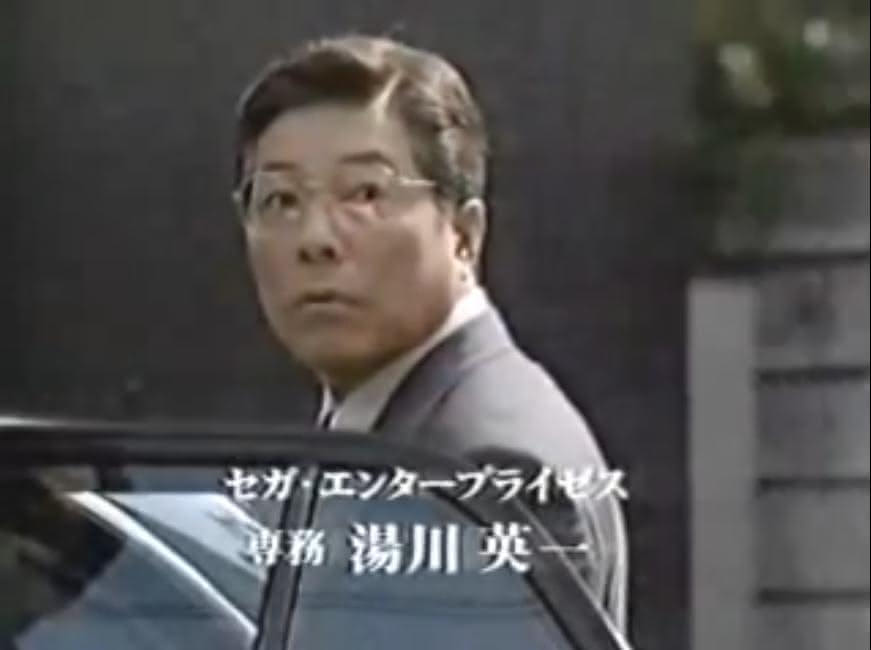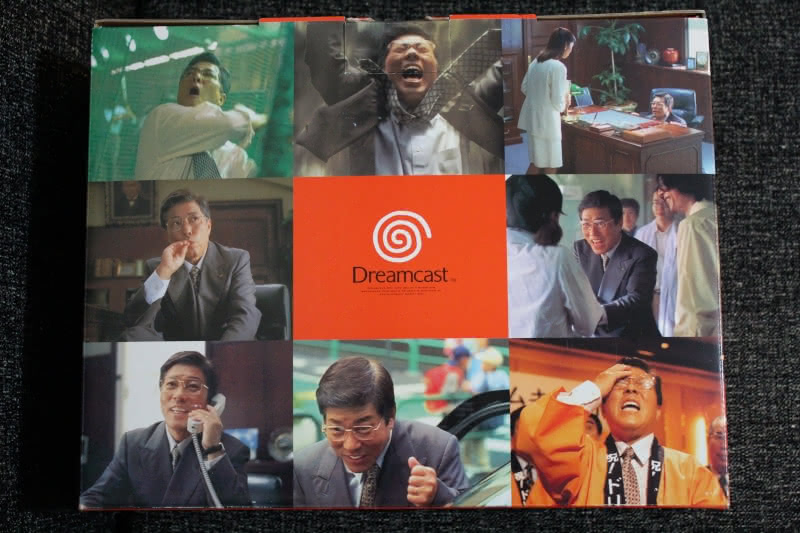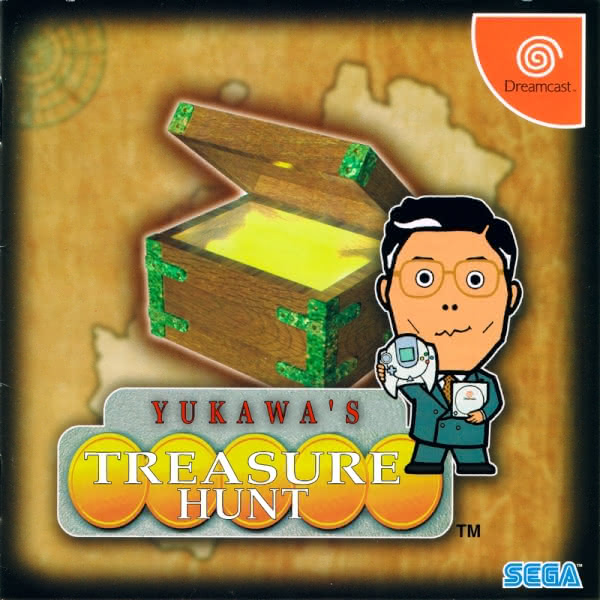The Sega Dreamcast, which proved to be Sega’s last video game console, was released in the United States to great fanfare on September 9, 1999. Dreamcast marked the beginning of the revolutionary sixth generation of home video game consoles, and its power was stunning when compared to its immediate predecessors (see my thoughts on Dreamcast’s power in my articles on long-lasting tech and video game visuals). It had a successful 1998 launch in Japan and 1999 launch in the United States (it avoided a near-disaster in the latter), but it faded quickly and was discontinued in 2001 in the midst of declining sales and the launch of Sony’s PlayStation 2. I received my own Dreamcast during its launch-month in 1999, and I recently set out to learn something new about the console with the best controller joystick to share with New Leaf Journal readers. In this post, I will tell the story of former Sega Director Eiichi Yukawa’s famous self-effacing 1998 commercials for the Sega Dreamcast in Japan.
I decided to search for interesting Dreamcast content on the excellent independent small web search engine, Marginalia Search. On Marginalia, I came across an article published in December of 1998 on Web Japan. The article was published in the What’s Cool in Japan section. Unsurprisingly given my introduction, the article focused on the Sega Dreamcast.
Back in the 1990s, it was still common for new video games and consoles to be released in Japan before they were released in North America. The Dreamcast was no exception to this rule. The article noted that it was released in Japan on November 27, 1998, nearly ten months before it would reach the United States.
The primary focus of the article was on Sega’s interesting Dreamcast commercials in Japan. I am no expert on Japanese video game commercials, but I recall that video game commercials in the United States attempted to tout the superiority of one game console or product over its rivals. Sega of America famously ran masterful campaigns in the early 1990s to promote the Sega Genesis against Nintendo’s Nintendo Entertainment System and Super Nintendo Entertainment System. However, the Web Japan article notes that Sega of Japan took an unusual and different path with some of its early Dreamcast ads:
One of these popular TV commercials features some elementary-school kids saying surprising things about [Sega]: ‘Sega is so uncool,’‘PlayStation is a lot more fun,’ and so on. [Sega Director Eiichi] Yukawa, who happens to overhear the kids bad-mouthing his company, is upset by this; he then sees his day go from bad to worse until he hears a voice from nowhere telling him to get up and fight back.
I cannot think of an example of a game company running a commercial in the United States featuring children complaining that its products are uncool.

Sega’s previous-generation console, the Sega Saturn, was released in 1994 in Japan and 1995 in the United States. While in the generation before that Sega had accomplished the impressive feat of nearly fighting Nintendo to a draw outside of Japan with the Sega Genesis (released in Japan in 1988 and the United States in 1989), the Saturn was viewed as a failure in the United States, where its sales lagged behind the generation leader, the Sony PlayStation, and the Nintendo 64. See the worldwide console sale statistics for generation 5 below:
- PlayStation (102.49 million)
- Nintendo 64 (32.93 million)
- Sega Saturn (9.26 million)
(Sadly for Dreamcast, it would sell 9.13 million units worldwide, coming in just behind the Saturn in the end.)
So, from an American perspective, Sega’s self-effacing ad would have made sense. However, there was one thing about the ad that struck me as intuitively odd. Saturn was unsuccessful outside of Japan. However, Saturn was significantly more successful in Japan, albeit still far behind PlayStation. See the Japan-only generation 5 statistics:
- PlayStation (19.4 million)
- Sega Saturn (5.8 million)
- Nintendo 64 (5.5 million)
(I knew that Saturn was relatively successful in Japan (especially when compared to the United States), I did not know that it outsold the Nintendo 64 in Japan before I looked it up.)
Thus, while Sega’s most successful console in the United States is the Genesis and its second most successful console worldwide was the Sega Master System (released in Japan in 1985 and the United States in 1986), Saturn was Sega’s most successful console in Japan by the end of its run (Saturn was discontinued in Japan in 2000 and discontinued outside of Japan in 1998). Saturn’s sales in Japan paled in comparison to the PlayStation (which outsold all home consoles released before it by the end of its run), but it was, in terms of raw sales, a relative success for Sega in Japan – and it marked the only generation in which a Sega console outsold its Nintendo counterpart.
Marketing strategy aside, it is interesting that Sega ran ads in Japan essentially throwing Saturn, which was not only still in production in Japan, but also the company’s most successful Japanese console, under the bus. Dreamcast marked the beginning of a new era in games in a number of respects, but these numbers make me think about one way that Saturn marked the end of the era. Despite having most of its success in the home console market in the United States (I set aside arcade machines – an area where Sega remained successful even after the demise of Dreamcast), Sega’s focus of power was situated in Japan. However, its most successful console in Japan in terms of sales was deemed to be a failure because it did not sell particularly well in North America and Europe. Eight years after the initial launch of Saturn, Nintendo released the Wii in North America two weeks before it released the Wii in Japan and the rest of the world.
The 1998 Web Japan article noted that Dreamcast had a successful launch in Japan (what portion of credit is owed to the unusual commercials I know not). It noted that Dreamcast’s launch was so successful that it ended up causing a problem for the star of the commercials, Mr. Yukawa:
Demand for the new game machines was huge, and only people who had reserved a Dreamcast unit in advance were able to buy one of the first shipment. But even these people, who were guaranteed of being able to buy one, lined up in front of stores around Tokyo the night before the game went on sale. Yukawa himself showed up at some of these stores, cheerfully greeting and shaking hands with customers. Dreamcast sales have been so good that stores throughout the country have been constantly sold out of the game–it seems that Sega didn’t make enough of them! In December, Yukawa took responsibility for this shortage by accepting a demotion. But the former director remains a highly popular figure among children. He even made his debut as a singer in December, when a record company came out with his CD–appropriately titled ‘Dreamcast.’
He lost his position as Sega Director but moonlit as a singer. All is well that ends well, I suppose. The commercials yielded a special “Yukawa Box” edition of the Dreamcast.

Mr. Yukawa’s starring role at Sega continued for a bit longer after he stepped down as managing director. Sega released a promotional game for Dreamcast called Yukawa Motosenmu no Otakara Sagashi, which is Former Managing Director Yukawa’s Treasure Hunt in English. In the game, the player took the role of then former managing director Yukawa in trying to dig up treasure around an island.

Mr. Yukawa was also featured in a Japan-only minigame for Sonic Adventure and he made a cameo in a later well-known Dreamcastgame called Shenmue. (See Dreamcast Junkyard for more details.)
While performing some research, I learned that Mr. Yukawa passed away from pneumonia in June 2021 at the age of 78. Mr. Yukawa was one of the founders of CSK, which acquired Sega in the 1990s. CSK transferred Mr. Yukawa to Sega in 1998 after acquiring the company.
Before continuing, I must note that I learned about Mr. Yukawa and his commercials in the first instance when I found the 1998 article that prompted this piece on Marginalia Search. In light of the fact that my only knowledge of the commercials was a contemporaneous article from twenty-five years ago, I did not expect that the commercials would still have a place in Japanese popular culture. However, every obituary of Mr. Yukawa noted that those commercials were not only what he was most-remembered for, but remain well-known today. For example, the following assessment comes from Ms. Alana Hagues of Nintendo Life:
Yukawa stepped into the role of managing director in 1998 and became an unlikely star, appearing in plenty of adverts for the Dreamcast and even on the box for the console when it launched in Japan. One of the most famous commercials focused on kids teasing the director, saying that Sony is much better than Sega. Yukawa, however, stuck up for the Dreamcast in the ad, and the commercial became hugely popular in Japan. So popular, in fact, that he got his own game — Yukawa Motosenmu no Otakara Sagashi — and some Sonic Adventure DLC.
In order to learn more, I turned to a Yahoo Japan article on Mr. Yukawa’s death which I ran through Google Translate using Simple Translate (see translation).
The article led by recounting Mr. Yukawa’s 1998 commercials, noting that “eight commercials were produced.” The Yahoo Japan article referenced Mr. Yukawa’s brief and humorous stint as a singer in the wake of the commercials.
Like the 1998 article, the Yahoo Japan piece noted that Mr. Yukawa was demoted shortly after starring in the famous commercials after he took responsibility for Dreamcast production delays. However, the article added that “he was a talented businessman who concurrently served as an officer of several companies in the CSK Group, to which Sega belonged.” He went on to serve as the president of Quocard, a Japanese company specializing in prepaid cards.
Yahoo Japan stated that Mr. Yukawa had been sick for several years going back to at least before 2018. His family kept his 2021 death private for just over one year.
The Dreamcast itself was at best a qualified success, but Mr. Yukawa’s humorous commercials were a major success in the area of video game advertising. At the time Mr. Yukawa starred in the commercials, it was not common for video game company executives to take the lead in marketing games and consoles. Although I have not studied the connection in detail, Mr. Yukawa’s brush with stardom was perhaps a harbinger for future game executives with big personalities, best exemplified by former Nintendo of America President Reggie Fils-Aimé.
For those who are interested, you can watch all eight of Mr. Yukawa’s famous Dreamcast commercials on YouTube.